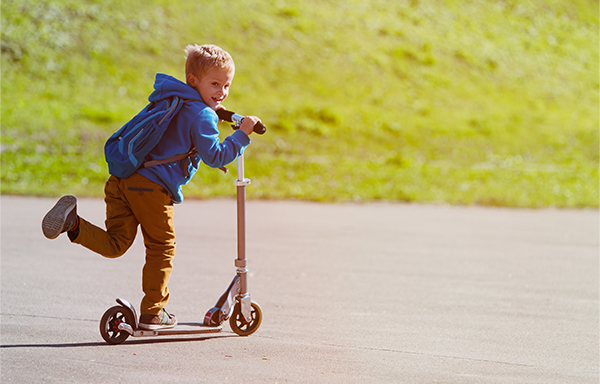The Great Outdoors

Whatever the season, being outdoors is good for us and for our children. Even venturing out for 10 minutes can open up a world of possibilities for language learning. Here are some ideas to help your child develop their language skills while out and about:
1) Stick faces
Find sticks and leaves around the garden and make faces with them. Talk about emotions, like ‘happy’, ‘sad’, ‘cross’, and ‘excited’ to describe the stick faces. Make stories as to why the faces are feeling that way, e.g. ‘my stick face is feeling happy because it’s sunny today’.
2) Word walks
Go on a word walk looking for things that are green, things that are growing, things associated with the season, things you can play with etc. Write a list or draw pictures as you go round, to help your child remember what they found. This is a great activity for learning new vocabulary, talking about functions (what things do), associations (what things go together) and for working memory.
3) Bug race
Find some bugs in the garden and set up a race between them. Who will win? Who came first, last, who was the fastest, who was slow? Who ran away?! Why were they so fast? This activity is good for developing words like ‘fast’, ‘faster’, ‘fastest’, and sequence words like ‘first’ and ‘last’
4) Grow!
Plant a seed and watch it grow. Talk about what you need to do ‘first’, ‘next’ and ‘last’. Talk about what the seed needs to grow (light, water, air). Measure the plant and watch it get bigger and bigger! This activity is good for understanding and using sequence words and for talking about size related language, e.g. ‘small’, ‘tall’, ‘taller’.
5) Mini Olympics
Set up an assault course together in your garden, finding anything you can. Describe what you need to do ‘first’, ‘next’ and ‘last’. Talk about ‘before’ and ‘after’, e.g. ‘before you jump on the trampoline, you need to hop over the sticks’. This activity is great for talking about and understanding time words such as ‘before’, ‘after’, ‘first’, ‘next’ and ‘last’, and for talking about action words.
6) Potion recipes
Make a magic potion from mud, leaves and twigs outside. Have a pot each with ingredients and encourage your child to tell you what you need to do to make the potion, e.g. ‘first, pour in the water, then put mud in, last stir it up’. Once your child has described a potion recipe to you, see if they can listen to your instructions as you make a potion. You can make sure they are listening to the instructions by putting a barrier between you both, so they have to rely on what you say and not what they see.